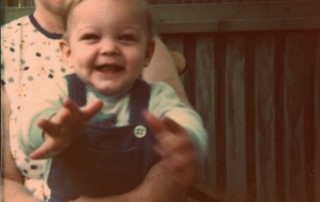…nothing lasts forever (emotions, thoughts, and pandemics included).
Hello Worry, My Old Friend
Author: Alex Gheorghe When we are anxious/worried our body automatically triggers its stress response (or “fight or flight”). This our body’s natural reaction system and has evolutionarily been beneficial in something very key… helping us stay alive! Our stress response includes physical and thought responses to our perception of an event or situation. As humans, we welcome predictability and when we feel a significant lack of control, our body can initiate this “survival mode.” When we spend a lot of time in survival mode, the chronic stress can have a negative impact on our mind and body. You may experience tension in your muscles, difficulty sleeping/eating or engaging in day-to-day activities. As someone who has experienced this first-hand, I know how scary and debilitating this experience can be. Feeling like we are trapped by our thoughts and unable to break out of this cycle can leave us feeling helpless and frustrated. It’s important not to be hard on ourselves though. When it comes to managing stress and anxiety (especially in today’s uncertain situations), knowledge is power because knowledge brings with it some predictability. Understanding the reasons behind your behaviour and emotional response are important – most of us aren’t born […]
Things I Was Wrong About, Vol. 1
Things won’t get better I’ve experienced darkness in my life. Deep darkness. When I was a kid, I was in boy scouts. One time, on a day trip, our scout leaders took us to an abandoned mine shaft. I know, this story has a very promising beginning, just like the last one. Because we didn’t know anything, and apparently neither did our leaders, we wandered into the mine shaft, deeper and deeper into the mountain. Our way was lighted by an actual torch, not a flashlight or lantern. One of our leaders, who just happened to be the one holding the torch and also happened to have the most severe case of ADHD of the bunch of us, thought it would be a funny trick, once we were several hundred feet into the mine shaft, to knock the torch on the ground, extinguishing the flame. The tunnel that we were exploring had curved to the left, meaning that when the torch was gone, the entrance to the shaft was out of sight around a corner, leaving us with absolutely no light. In review, we were 12 year old kids in an abandoned mine shaft and it was so dark, we […]
Playing Dead Emotionally: How Numbing Your Pain Can Be a Curse (and a Blessing)
Fight, Flight and … Freeze? Most people have heard of the “fight or flight” response. It is the body’s naturally hard-wired way of dealing with threats to one’s safety. I have written about it before, a few times, so I won’t go into it again but today I’m going to mention the third part of this response: freeze. In nature, animals typically go to flight first, since they are free of ego and have nothing to prove, only to enhance their own chances of survival. If they can’t go to flight and escape danger, they will go to fight, posturing and growling in hopes of scaring off the threat. If this fails, they will actually engage in aggressive behavior, albeit defensive aggression. Once these two options are unsuccessful, or if they are unavailable, most species have a form of reflexive behavior that could be termed “playing dead”. Playing Dead Emotionally Since most of the threats people face in our neck of the woods are social or emotional (although many do face actual physical threats in many forms), the freeze response may look a bit different than it does for a possum or cat. In our case, we tend to play […]











Recent Comments